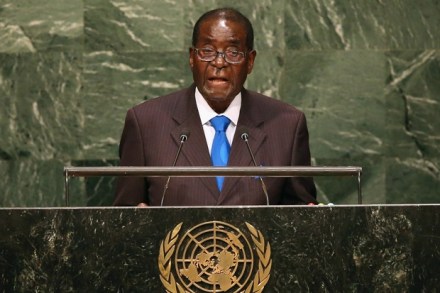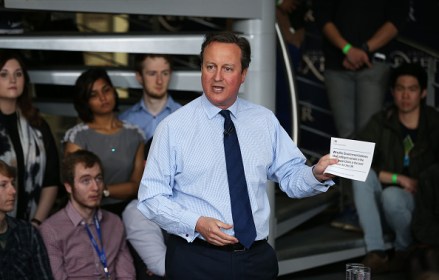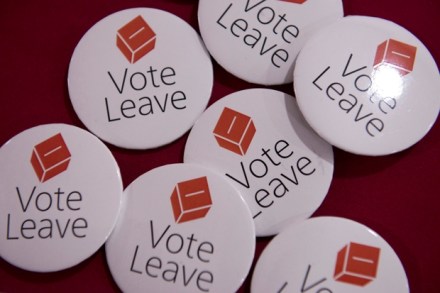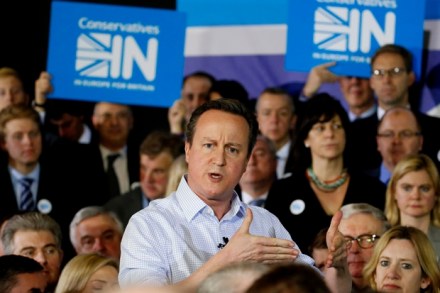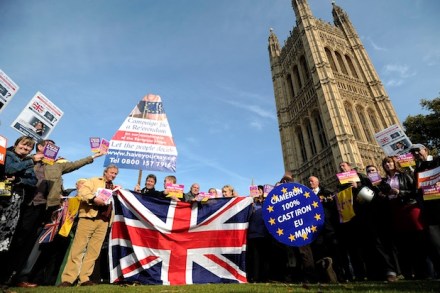Cameron and Mugabe: spot the difference
It is not what Robert Mugabe would do. Calm down. These are ‘spiv Robert Mugabe antics’, said the Tory backbencher Nigel Evans, of the government’s alleged £9 million mailshot making the case for staying in the European Union. But no. They aren’t. If David Cameron was behaving like Robert Mugabe, then he wouldn’t just be sending a leaflet to your house. He’d be sending a gang of thugs to your house, who all claimed to have fought in the second world war and yet had an average age of about 22, and then they’d come into your house and make you leave your house, and say it was their house. And
